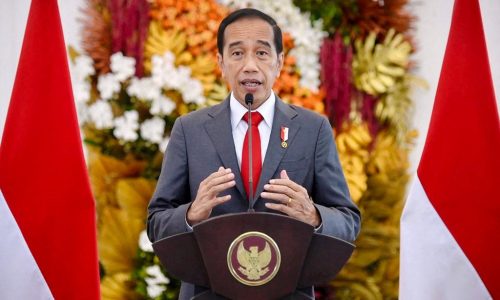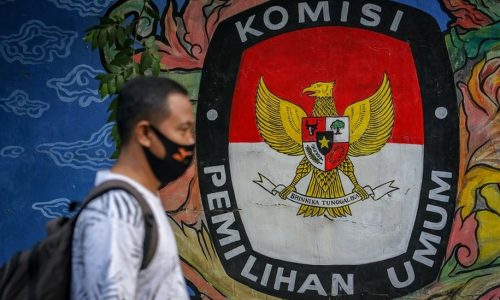Hot weather conditions in Indonesia could threaten food security and the agriculture sector, a researcher at the Center for Indonesian Policy Studies (CIPS), Mukhammad Faisol Amir, said in a statement issued on Sunday (30/4).
Amir explained that one of major impacts of the increasing overall temperatures is reduced water supply and drought. In fact, adequate and well-supported water sources are very decisive for agricultural production.
“The availability of water is very important for agriculture results and ensuring our food supply security. Therefore, there should be adequate quality and quantity of water,” Amir said.
Faisal noted that the agricultural sector absorbs around 70 percent of all freshwater, making it the main cause as well as the victim of water scarcity.
If not handled well, this level of water consumption will destroy the ecosystem and deplete the amount of water available for other uses.
Some study results reveal that the impact of climate change on the agricultural sector that does not adapt will increase water demand by up to 40 percent.
In addition, in the coming decades, water scarcity could affect two-thirds of the world’s population, exacerbating damages to the world’s ecosystem.
While Indonesia has extraordinary potential when it comes to renewable water resources, the supply and demand for water in the country are often imbalanced, Amir said.
Therefore, water use management and innovative agriculture are key for handling the challenge of water scarcity. “There are many agricultural system best practices from regions in Indonesia that can be adapted in other regions,” he said.
These include irrigation management using an environmental service payment scheme and the use of seeds that are more resilient to drought.
Government mitigation measures to handle weather anomalies
Head of National Research and Innovation Agency (BRIN) Climate and Atmosphere Research Center Aris Pramudia noted that weather anomalies will occur in Indonesia throughout 2023 until 2024.
In relation to such condition, the government formulates various adaptations and mitigation efforts to mitigate the adverse effect of these anomalies, which can potentially resulted in a food crisis. Some of the efforts include monitoring information on the rainfall forecast and potential hydro meteorological disasters.
Pramudia added that other efforts include the implementation of an accurate planting schedule and adaptive crop varieties, initiate climate change impact handling movement, and accurate utilization of rainwater harvesting infrastructure.
In line with this, Food Crop Director General at the Agriculture Ministry Suwandi also outlined other steps taken by the government to handle the risk of climate crisis that may affect food crops in Indonesia.
These include the implementation of quick win methods starting from the mapping of flood-prone regions during the rainy season and drying equipment usage and insurance usage for farmers in the case of harvest failure.
Moreover, the government identifies crop varieties with low tolerance to water and drought and improves the quality of human resources and research, he added.










